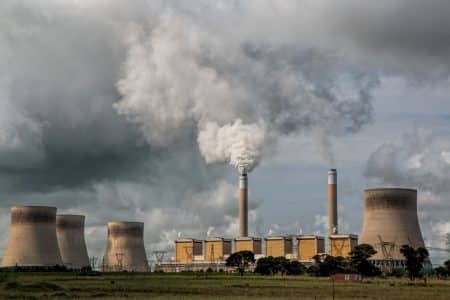The warmest decade since records began? - Dispatch Weekly
February 20, 2019 - Reading time: 5 minutes

Leading scientists have confirmed that we are in the middle of the warmest decade since records began in 1850, and the evidence suggests its due to human activity. Ever since the industrial revolution, thermometer readings all around the world have been steadily increasing to ever higher records.
How much warmer will it be?
According to The Met Office, average temperatures over the next five years are likely to be 1C or more above pre-industrial levels. There is a possibility that in the next five will see a year in which the average temperature rise could be greater than 1.5°C above pre-industrial levels, beaching one of the conditions of The Paris Agreement, set out in 2016 to tackle the issue of climate change.
People assume that a one-degree increase in temperature shouldn’t be too much of a worry, after all the temperature where we live fluctuates all the time. What people don’t understand is that global temperature represents an average of the entire planet’s surface. A one-degree change is significant. In the past, a one or two-degree change was enough to plunge the earth into the “Little ice age” which occurred between the 16th and 19th Centuries and saw significantly lower temperatures than today.
If the data follows a similar trend, then the decade from 2014-2023 will be the warmest in the last 150 years of record keeping.
Can we do anything about it?
UN scientists concluded that it would take a significant decrease in carbon emissions to stop the breach of the terms of The Paris Agreement by 2030. Analysts from the Met Office presume there’s a 10% chance of this happening within the next five years.
“It is the first time the forecasts have shown a significant risk of exceedance – it is only temporary. We are talking about individual years fluctuating above the 1.5-degree level,” said Professor Adam Scaife, a leading expert of the Met Office.
The Met Office is almost certain in its predictions that from 2019-2023, we will see temperatures anywhere from 1.03°C to 1.57°C above the 1850-1900 level, with enhanced warming around the globe, especially in places like the Arctic.
How can we be sure?
But how did we know what the temperatures were back before 1880 when we didn’t have reliable measurement methods in existence? Experts rely on biological or physical archives called “proxies” that give information about past temperature. For example, tree rings, coral skeletons, and glacial ice cores are proxies for annual temperature records, while boreholes (holes drilled into the Earth’s crust) can show the temperature shifts over long periods of time.
What has caused it?
The result of temperatures all across the globe reaching an all-time high is partially due to the rise in emissions of greenhouse gases, particularly carbon dioxide, that are released by the use of fossil fuels among other activities. The negative effects of burning fossil fuels have been exacerbated by other activities such as deforestation, which reduces the planet’s capability to convert CO2 as well as aggressive farming tactics which causes the release of other greenhouse gasses such as nitrous oxide and methane.

No one could say it better than Prof Sir Brian Hoskins, chair of the Grantham Institute, Imperial College London, “Our lack of decisive action over climate change makes us like a climber ascending a mountain, knowing that there will not be enough oxygen at some height, yet still we go on”. It’s time to make a change and reduce greenhouse emissions!
Promisingly in 2018, the UK produced over 30% of its energy through renewable resources with approximately another 23% being produced by Nuclear plants. However, the efforts of one country with less than 1% of the world’s population will not be enough. To limit the ramifications there needs to be a concerted effort by the world’s largest economies including China, India and the USA to ensure future continued global warming is mitigated.

DW Staff
David Lintott is the Editor-in-Chief, leading our team of talented freelance journalists. He specializes in covering culture, sport, and society. Originally from the decaying seaside town of Eastbourne, he attributes his insightful world-weariness to his roots in this unique setting.



